Undergraduate Student Success Initiatives
Undergraduate student success initiatives from all academic departments, various programs and Provost’s Office supporting units span the student lifecycle. We have developed innovative new support programs and added capacity to successful existing efforts.
Undergraduate Recruitment
Story: Corps Function
Story: NC State Joins Coalition to Improve College Application Process
Story: First Native Education Forum tackles Native American higher education
The Student Transfer Enrollment Advising and Mentoring (STEAM) program in the College of Agriculture and Life Sciences helps make higher education more accessible to rural students interested in pursuing an agriculturally related major. STEAM students complete their first year at a community college and then transfer into NC State.
Student Spotlight: Student Spotlight: Entrepreneur Builds Steam at NC State
CONNECT
The CONNECT program in the College of Natural Resources gives transfer students the opportunity to enroll at NC State during summer school in preparation for an undergraduate degree in a natural resources field. CONNECT students may transfer from any regionally accredited college or university.
Undergraduate Recruitment
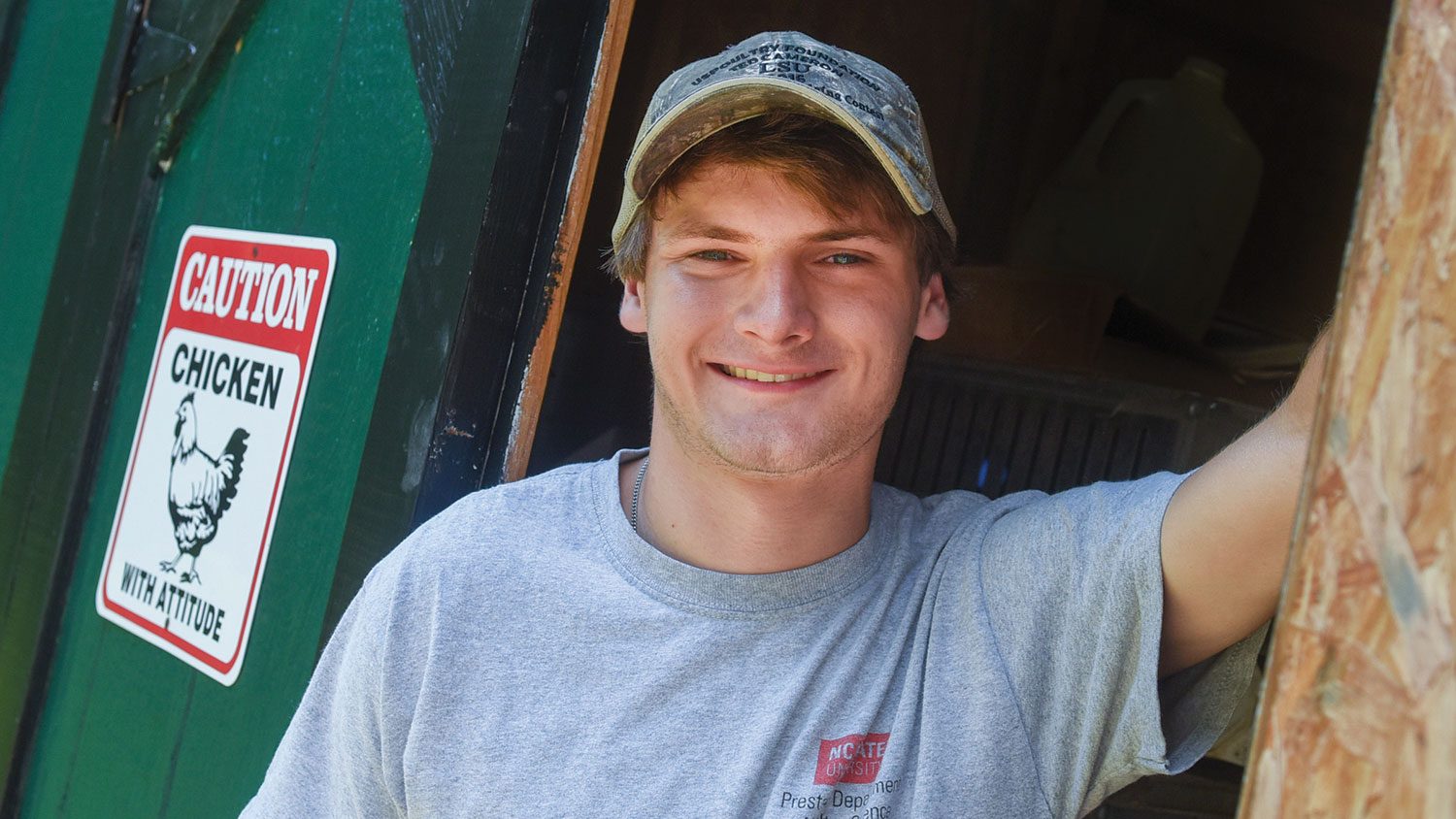
Transfer Students
"At first, the university denied me admission, but they offered for me to join the
– Ben Alig, junior, poultry science and agribusiness management
Student Transition/First-Year Students
New Student Orientation, a program required for all first-year and transfer students, helps students prepare for transition into college life and the challenges and opportunities that lie ahead—intellectually, emotionally, academically and socially. In post-orientation assessments asking new first-year and transfer students whether they felt better prepared to start their first semester at NC State, affirmative responses increased by nearly 10 percent between 2012 and 2016. Participation in Parents’ Orientation has increased by 34 percent in the past four years.
Summer START
Summer Start is a unique opportunity for first-year and transfer students (including international students) to get a head start on the NC State undergraduate experience. Through this residential summer program, students enroll in classes toward a degree, get to know the campus and faculty members, and meet other incoming and upper-level students, all before the first fall semester. More than 1,100 students have participated in the Summer Start program in the past five years, with a 98 percent increase in participants from 2012 to 2016.
Wolfpack Welcome Week
Wolfpack Welcome Week, held during the first week of the fall and spring semesters, creates a foundation for a successful semester by helping students learn about their new home, make new friends, build their own community at NC State, and explore all the exciting ways to get engaged in and outside of class. The number of programs offered during Wolfpack Welcome Week has doubled since 2012.
Common Reading Program
The Common Reading Program creates a common educational and interactive experience for incoming undergraduates, introducing them to NC State institutional and academic values and expectations by selecting a book that all incoming students are either required or encouraged to read, depending on their college. The program inspires students to use what they’ve learned from the reading and accompanying experiences to make the world better in some way.
First-Year Students Required to Live on Campus
Beginning in fall 2017, NC State will require all first-year students to live on campus. Research shows that living on campus leads to higher levels of engagement in activities and a higher GPA.
Living and Learning Villages
Living and Learning Villages are interest-based residential communities that engage students both in and out of the classroom. In the past five years, University Housing has added five new villages and two interest living groups: Second Year Transitions and Transfer Experience (STATE) Village, EcoVillage, Engineering Village, Wellness Village, Andy and Jane Albright Entrepreneurs Village, Black Male Initiative and Native Space. Students who live in these villages have higher GPAs and are more involved on campus than the overall student body. In 2012, 25.25 percent of campus residents lived in a village; by fall 2016, that proportion had increased to 28.25 percent.
Article: Exploring, Living, and Learning
This program is designed to cultivate students’ higher-order skills in critical and creative thinking. TH!NK improves the job prospects of graduates by addressing the top 10 attributes that employers look for in new hires, based on a recent survey by the Association of American Colleges and Universities. Faculty involved with the TH!NK initiative receive extensive training in pedagogies and best practices for developing these higher-order thinking skills in students. To date, nearly 6,000 students have been directly affected by TH!NK.
Article: Improving How Students TH!NK
First-Year Inquiry
The First-Year Inquiry (FYI) program employs “inquiry-guided” teaching methods in general education courses for first-year students. In this methodology, students start with a question or problem to investigate, rather than being presented with established facts or solutions to the problem. FYI students show measurable academic improvement after taking a single FYI course. Each semester FYI is able to offer classes in 11 to 15 disciplines, serve 425 to 500 students and offer innovative classes that help fulfill General Education Program credits while training new faculty in inquiry-guided learning.
Life Sciences First Year Program
The Life Sciences First Year (LSFY) program, which launched in fall 2014, is open to all incoming first-year students who express interest in earning a degree in select areas of the life sciences. LSFY gives students the opportunity to explore degree options in the life sciences and related fields while receiving additional support designed to facilitate a successful first year in college, including first-year courses, academic advising and peer support. There were 357 students enrolled in LSFY in 2014, and the program grew to 459 students by fall 2016. Students in LSFY take a common set of courses that prepare them for any of the life sciences degree programs at NC State. A similar first-year program for environmental sciences students is in development.
Exploratory Studies
Exploratory Studies, formerly the First Year College Program, provides a comprehensive experience for first-year students who want to learn about NC State’s many academic programs, choose the right major and graduate on time.
Student Transition/First-Year Students
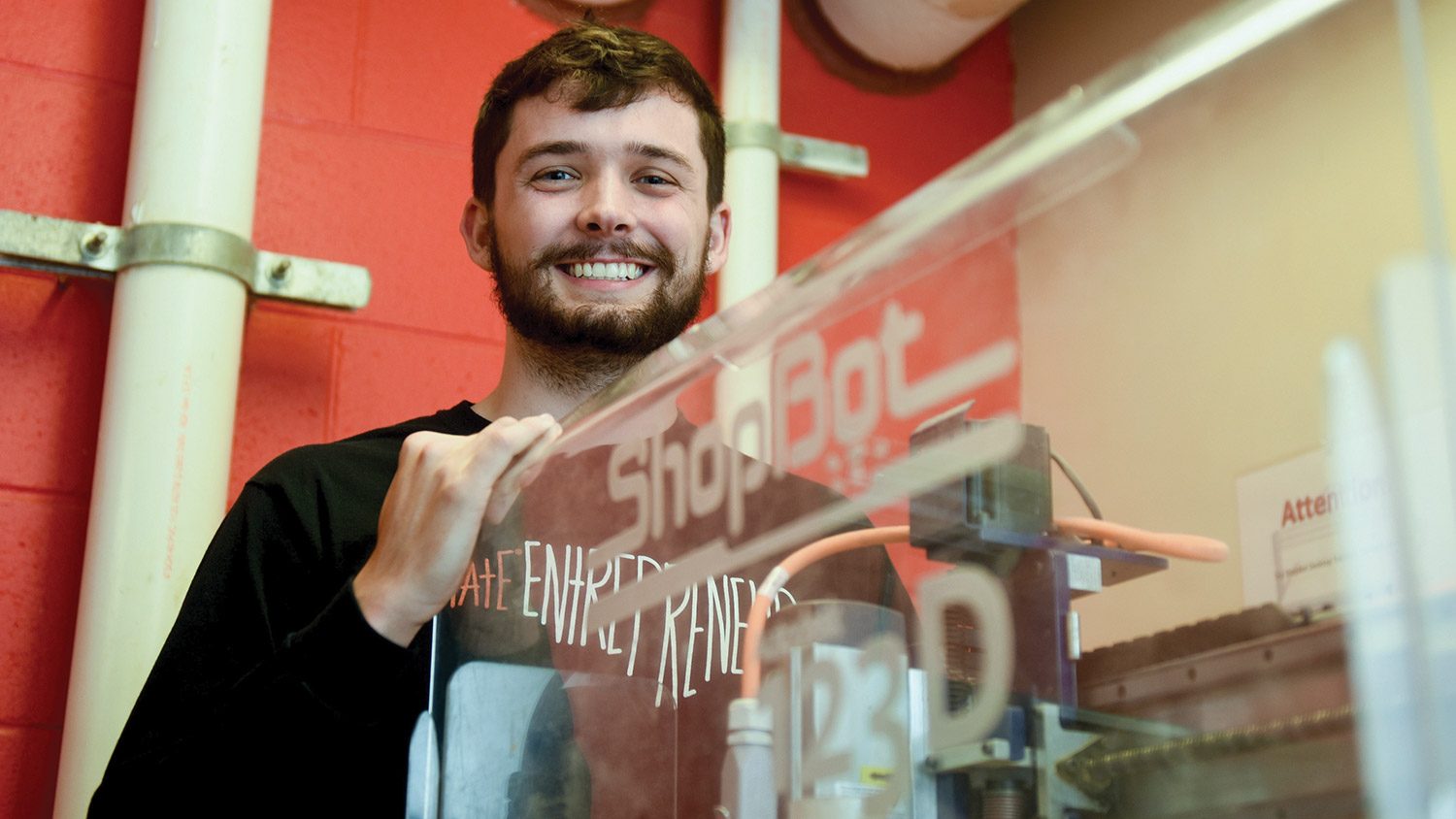
Living and Learning Villages
"My entire college experience has been changed by the Albright Entrepreneurs Village. The resources offered by the village are the best on campus, and I would recommend everyone to join. I am extremely thankful for all the people who have helped make the experience so great."
– Will Duke, sophomore, computer science
Undergraduate Experience
NC State is one of eight universities selected by the American Council on Education to participate in the At Home in the World initiative, a two-year demonstration project that seeks to unite diversity and multicultural education with a school’s international and globalization efforts. The initiative aims to increase the number of underrepresented minority students studying abroad by 25 percent.
Generation Study Abroad
NC State has joined Generation Study Abroad, the Institute of International Education’s national initiative to double the number of American students who study abroad by the end of the decade. NC State has committed to increasing the number of students studying abroad by 50 percent by 2019. More than 1,250 NC State students studied abroad in the 2015-2016 academic year, a 24 percent increase since 2011-2012. The initiative is also focusing on increasing the diversity of the students who study abroad, ensuring program quality and removing barriers to participation. Participation in NC State study-abroad programs by underrepresented minority students has grown by 62 percent over the last five years.
Prague Institute
The NC State Prague Institute is a year-round facility that advances the educational and outreach missions of NC State University. The Prague Institute is NC State’s only permanent international facility that welcomes both students and faculty. The Prague Institute will soon begin an expansion to serve even more students from NC State and other institutions.
Increased Funding for Study-Abroad Scholarships
To encourage more students to study abroad, NC State will seek $1 million in new endowment funds for study-abroad scholarships. Funding for study-abroad scholarships has increased 72 percent over the past five years.
Article: Grant Enhances Study Abroad
PackAbroad Ambassadors Program
The PackAbroad Ambassadors program is open to any NC State student who has studied abroad. The program was created to give students a way to share their study-abroad experiences with each other and with incoming exchange students. The program also hosts events, gives presentations and does other forms of marketing to spread the word to NC State students about study abroad opportunities.
Cultural Exchange Network
The Cultural Exchange Network fosters global learning and international friendships through social, academic and service activities on campus and throughout the local community. Since its inception, more than 3,000 students, including 1,500 domestic students, have participated in this program led by NC State’s Global Training Initiative.
Global Perspective Certificate
This certificate allows students to document their academic, professional and extracurricular involvement in international activities, for use in applying for scholarships, graduate school and employment. Over the past five years, the number of students completing the Global Perspectives Certificate each year has increased from an average of 20 to nearly 30.
The Multicultural Symposium, held each year since 1983, aims to help foster a sense of community for incoming NC State students (and their parents) by providing them with information about campus resources, a support network, and cultural information on African-American, Native American and Latino heritage. This innovative program continues to help multicultural students better prepare for the start of their collegiate careers and contributes to increases in student retention and graduation rates.
Story: Forensic Research Finds Bone Density Affects Size of Bullet Holes
Story: NC State named one of country’s healthiest universities
Article: Experiential Education Works
LCR projects combine learning technologies with face-to-face instruction to improve student learning outcomes in large-enrollment gateway courses for which a passing grade is required to advance within the course of study. Our assessment results show statistically significant improvement in passing rates for LCR courses, and consequently fewer course repeats. Students in LCR courses also do better in subsequent courses within the discipline. Since fall 2011, we have worked with faculty on 25 LCRs.
SCALE-UP
SCALE-UP classrooms, a classroom design and pedagogical innovation developed in the physics department at NC State, have become a national model for improving student learning outcomes, particularly in the STEM disciplines. Similar to LCR, SCALE-UP significantly increases passing rates, decreases course repeats and improves subsequent performance in the discipline. Since fall 2011, NC State has created two new SCALE-UP classrooms and has redesigned an existing classroom for SCALE-UP. At least eight instructors have used elements of the SCALE-UP methodology across 20 different STEM courses.
Additional Content: Scaling Up to Interactive Learning
Flexible Access
The Flexible Access program makes a large number of general education courses available to students online, providing flexible scheduling options for those who need these courses to graduate. Respondents to student surveys report “progress toward degree” as the No. 1 reason why they take these courses online. Since fall 2011, we have offered 3,829 course sections through the Flexible Access program, and the number of degree-seeking students taking these courses during the academic year has increased by 43 percent since the program’s inception. For the current academic year, there have been 206 Flexible Access course cap overrides to accommodate graduating seniors.
Undergraduate Experience
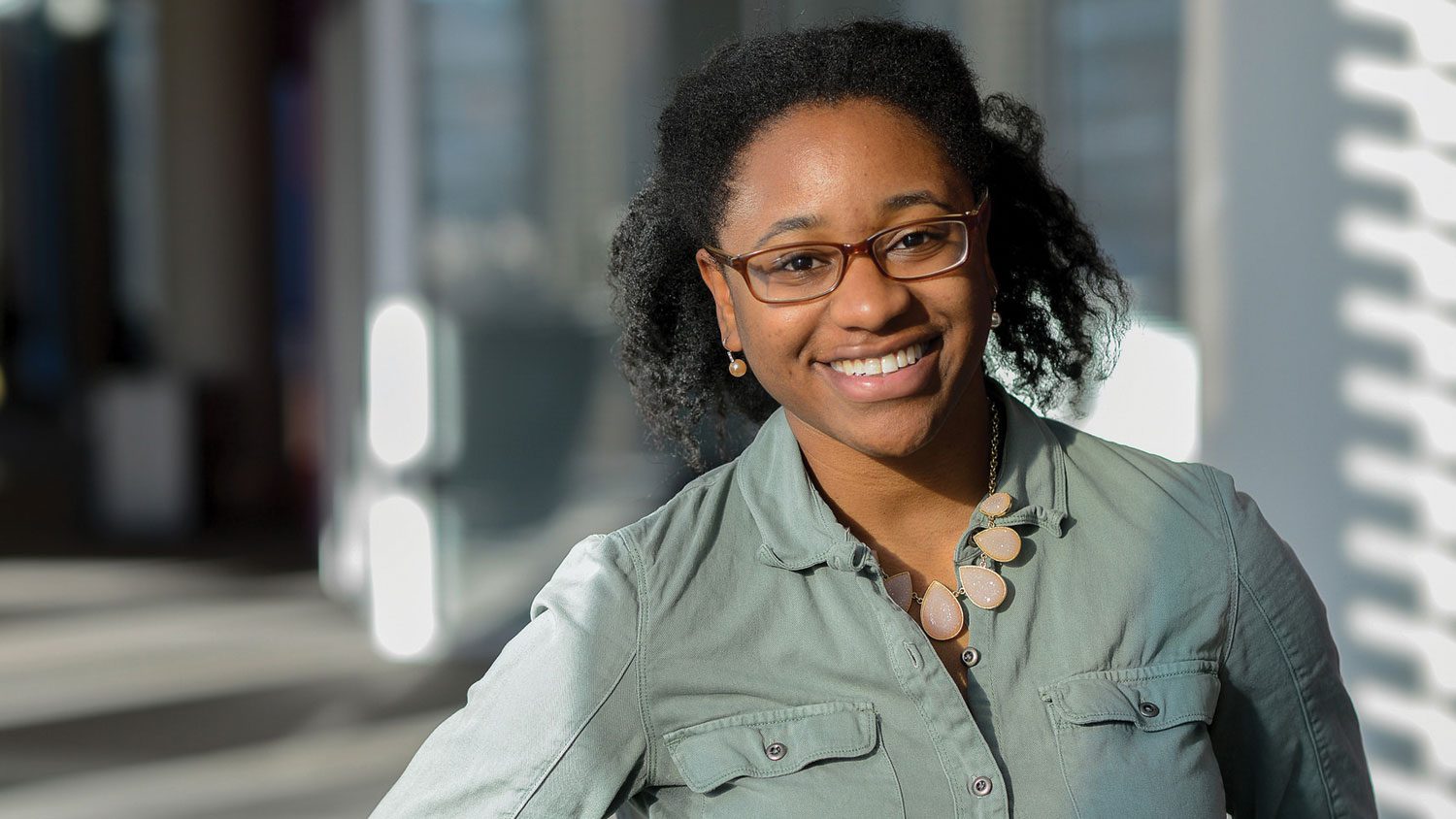
Provost’s Professional Experience Program
"PEP helped me strengthen my leadership skills and gave me an opportunity to show others the importance of service in their lives. I want to be able to take what I have learned into my future career."
– Jonique Lyles, Bachelor of Science in political science, College of Humanities and Social Sciences, 2016
Honors, Scholars and Fellows Programs
and types of developmental programming, including international and domestic service trips, industry and alumni networking, and leadership opportunities. The program will celebrate its sixth graduating class in May 2017 and will add to its network of alumni stretching from coast to coast in the United States and throughout the world, all of whom are using their STEM talent to address critical societal, economic and educational issues. Currently, the program has 200 active students and will expand to include transfer students beginning in fall 2017.
Story: Goodnight Scholars Program Now Extends to North Carolina Transfer Students
Honors, Scholars and Fellows Programs
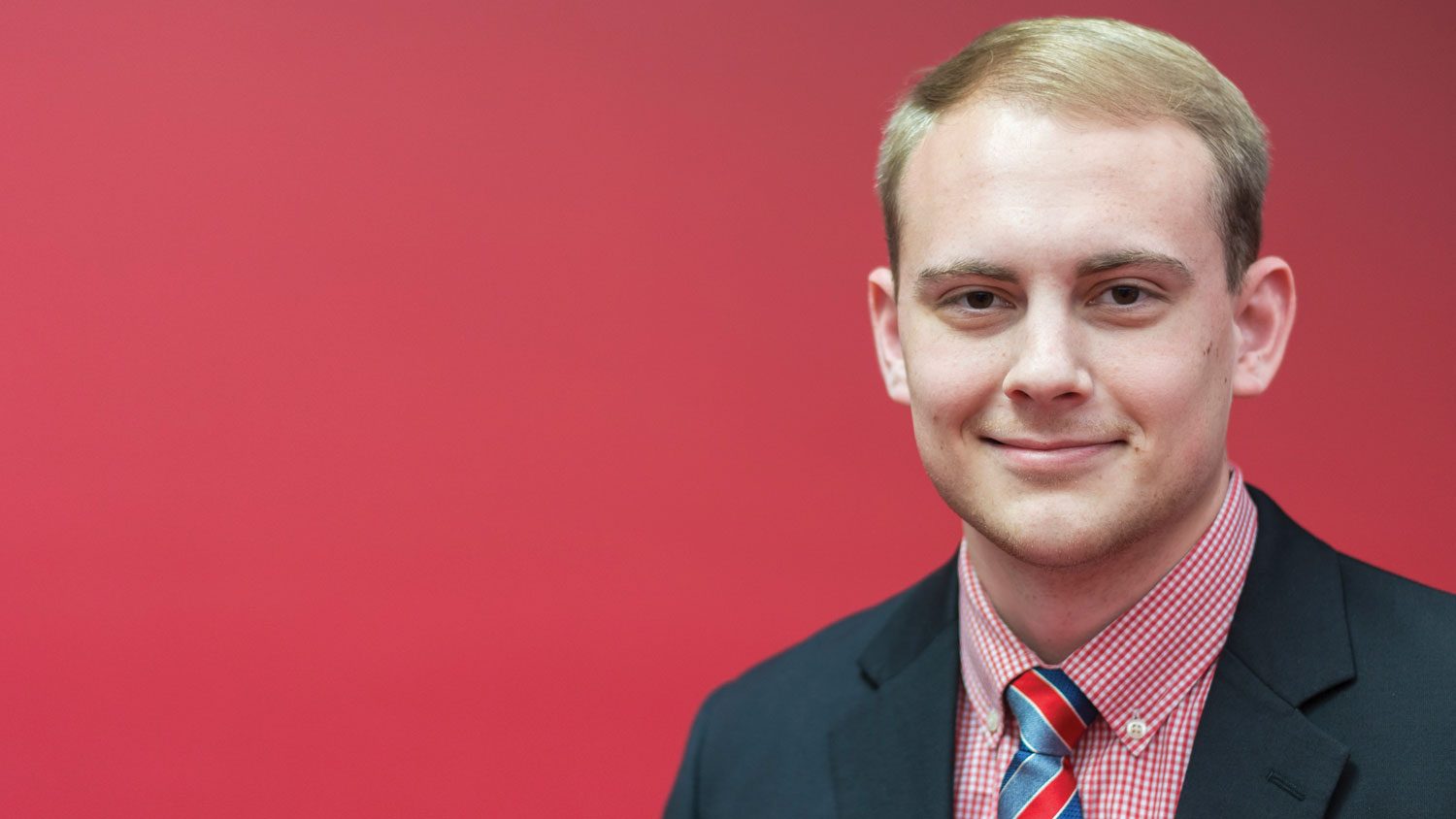
Goodnight Scholars
“The Goodnight Scholars Program inspired me to lead and serve as I learned. With the program, there are so many people watching what you’re doing, and if you work hard at what’s in front of you, the opportunities will present themselves.”
– Peyton Youmans, Bachelor of Science in mechanical engineering, College of Engineering, December 2016
Student Support
Additional Content: #StopTheStigma – Full Version
Story: TRIO SSS Students Participate in Alternative Service Break
Staff Chat: Roy Baroff and Mike Giancola
Student Support
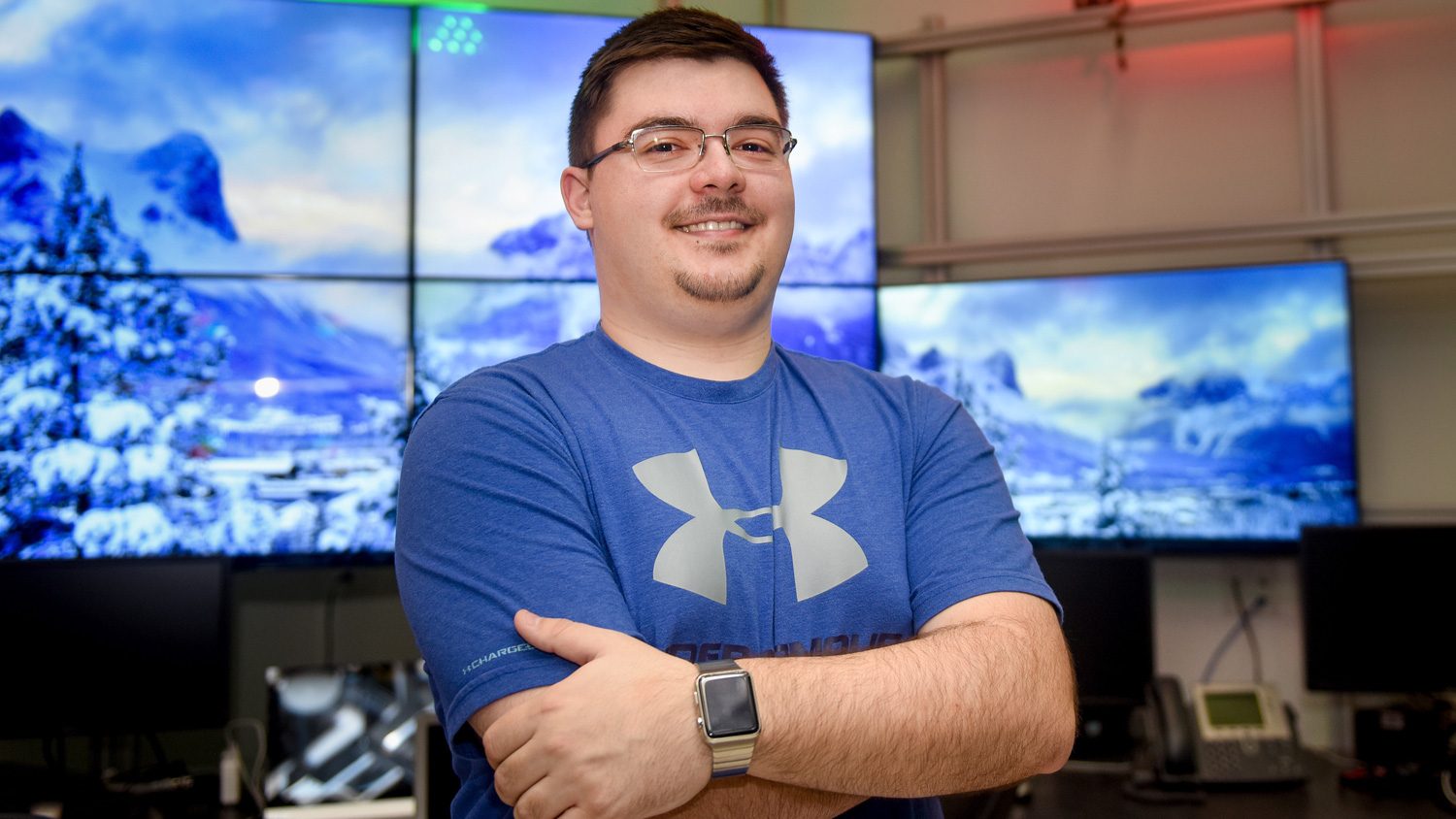
The NCSU Libraries
“Being an IT Student Expert with the NCSU Libraries, I have received countless hours of mentoring to hone and further improve my IT skill set and management experience. Through this mentoring, I have developed several personal and professional relationships that most IT students do not have. The experiences I have received have already begun to prove themselves outside the workplace before graduating.”
– Keith Pruitt, senior, engineering
Student Environment, Tools and Services
Undergraduate Experience
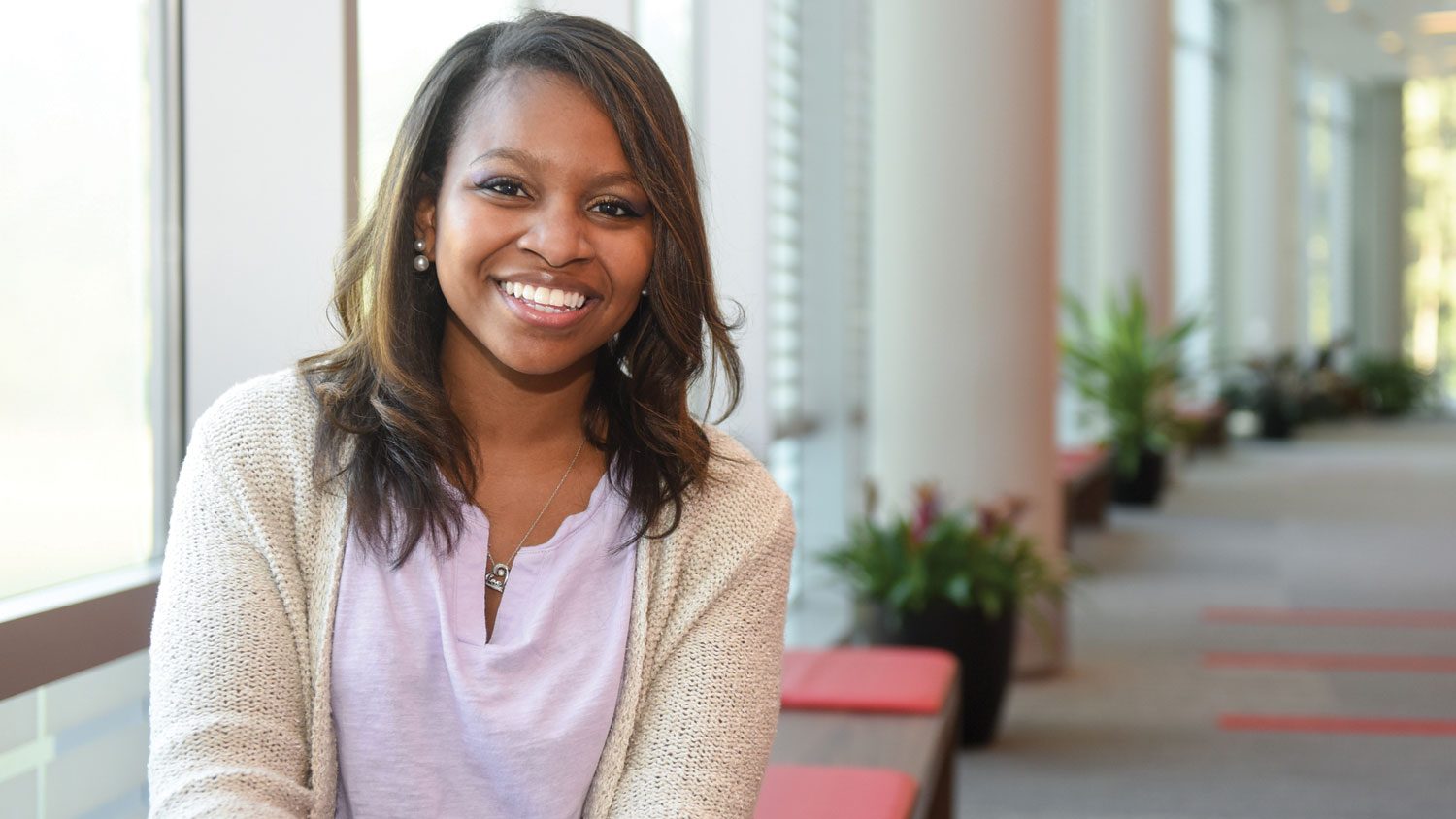
Study Abroad
“Thanks to organizations like the Caldwell Scholars, the Thomas Jefferson Scholars and the Black Alumni Association, I’ve been able to have educational experiences in India, Austria and the Czech Republic, and upcoming in the Dominican Republic. Studying abroad is an eye-opening, life- changing experience, and I strongly recommend it to every student at NC State.”
– Sabriya Dobbins, senior, animal science, social work